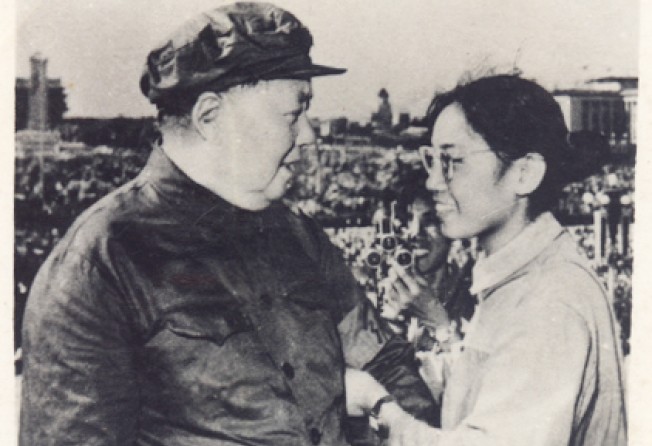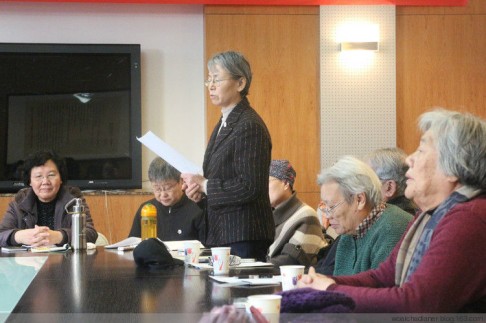Another Communist Party princeling apologises for Cultural Revolution atrocities

Following a rare apology issued last year by Chen Xiaolu, the son of one of the Communist Party's founding generals, for his wrongdoings during the Cultural Revolution, the daughter of another Communist Party elder has also stepped up to express remorse for her connection to the death of her middle school principal 48 years ago.
Song Binbin, 64, joined a group of her former classmates on Sunday to apologise to their teachers for their part in the political upheaval that ravaged China between 1966 and 1976, The Beijing News said on Monday.
Song’s father, Song Renqiong (1909-2005), was one of the Communist Party’s founding generals and a member of the "Eight Immortals", the most powerful elders in the Party's top echelon in the 1980s and 1990s.
The younger Song, who was studying at a high school attached to Beijing Normal University at the time, became a symbolic figure in the frantic and often violent Red Guard movement after a meeting with Mao Zedong on top of the Tiananmen Rostrum in August 1966, where Mao encouraged Red Guards from around the nation to resort to violence in their "continued revolution".
A photo published on The Beijing News on Monday shows Song and some of her former fellow classmates bowing in front of a statue of Bian Zhongyun, the party secretary and vice principal of the school at the time who was persecuted and brutally beaten to death by students two weeks before Song's historic meeting with Mao. She was among the first of educators to be killed during the Cultural Revolution.
“I would like to express my ongoing grief and apologies to Principal Bian. The inability to protect school leaders is my lifelong regret,” Song was cited saying to all her teachers and classmates.
Song denied taking part in the brutal beatings that killed the vice principal, but apologised for not doing enough to stop the violence because she was afraid to be blamed for hindering the “criticising and denouncing efforts”.
“I did not [intervene] and was unable to prevent the violence towards Principal Bian and other school officials,” she said.
Song, who had lived in the US since the 1980s and moved back to Beijing in 2003, told The Beijing News that she hoped the students’ apologies could prompt public introspection over the events during the Cultural Revolution.
“If we do not thoroughly understand and examine the mindset behind the entire Cultural Revolution era, similar incidents will happen again,” Song was quoted as saying.
Other students who had participated in the violence also issued apologies to their late and surviving teachers.
“[My teacher] is already over 90 years old, there isn’t much time left for an apology if I don't do it now,” said Wang Simei, who was also a student in 1966.
In the past few years, a number of people who were student Red Guards during the Cultural Revolution have made belated public apologies to their former victims. The most prominent figure among them was Chen Xiaolu, the youngest son of People’s Liberation Army Marshal Chen Yi.
A Red Guard leader during the Cultural Revolution, Chen first published a written apology online, and then expressed his remorse in person to his former teachers. The high-profile moves garnered national attention and triggered heated discussions online.
